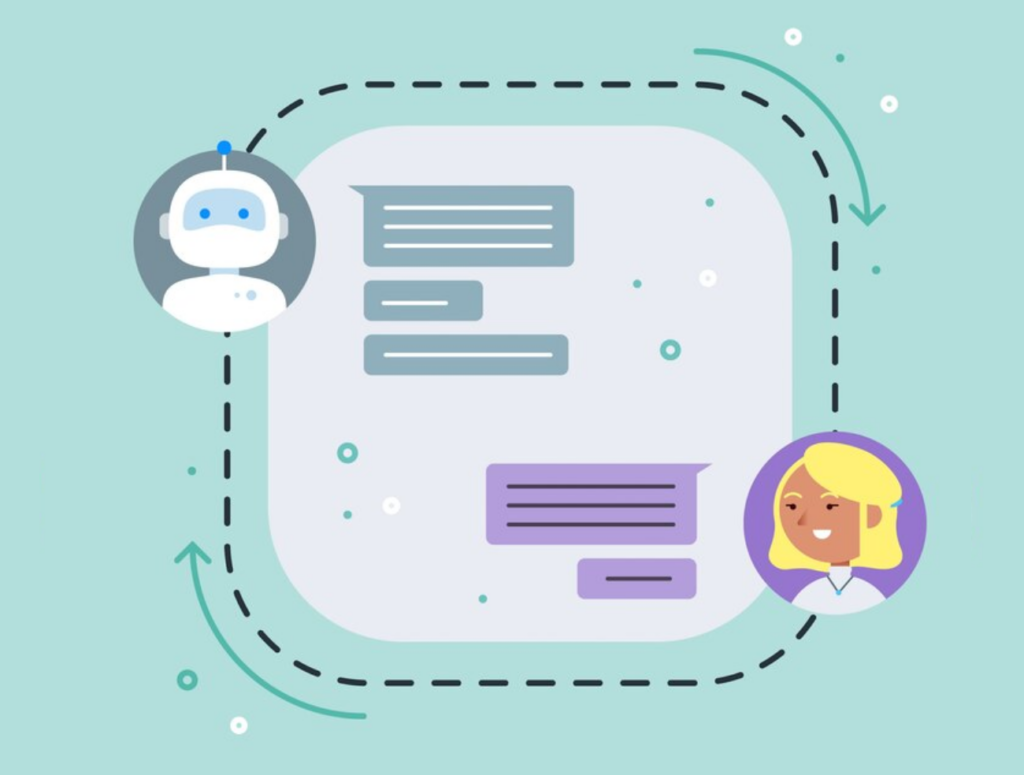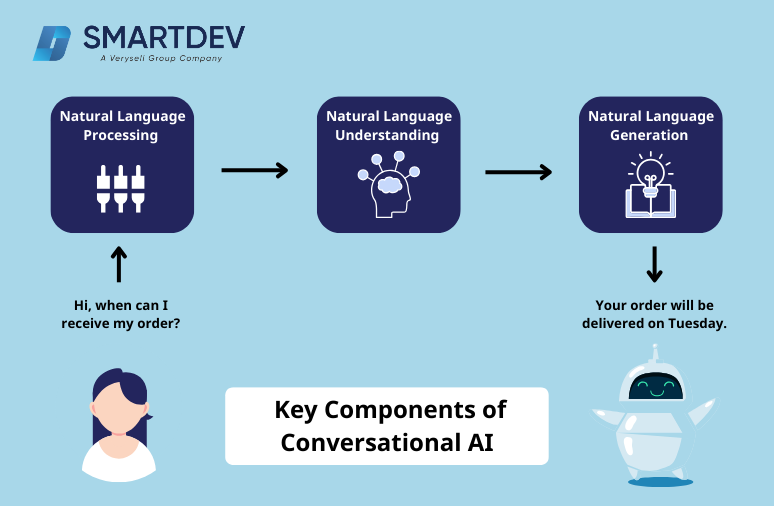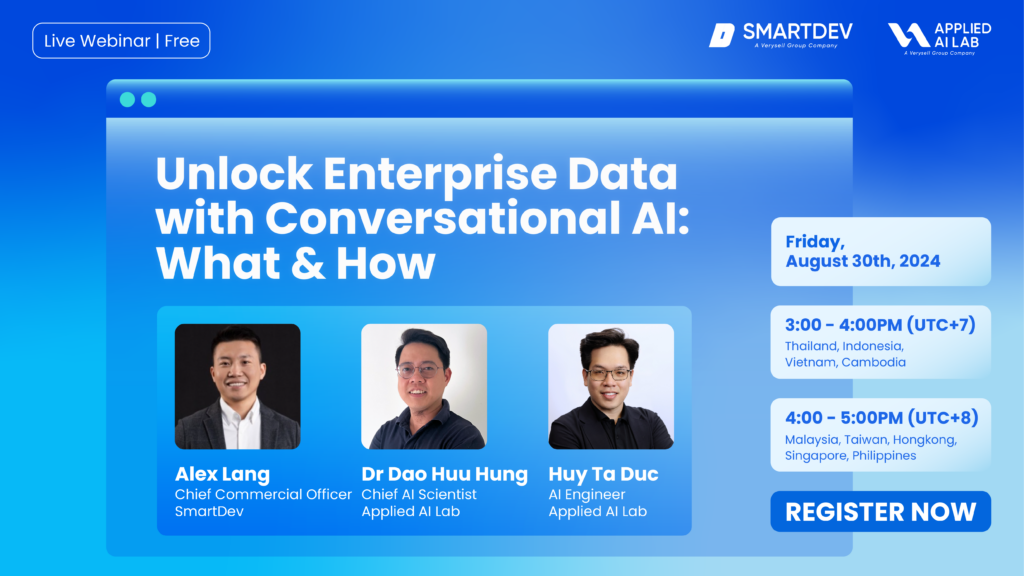Have you ever noticed how AI is becoming a bigger part of our daily lives? From customer service chatbots to virtual health assistants, these systems are increasingly handling tasks that once required a human touch. But there’s something even more interesting happening – AI is starting to understand not just what we say, but how we feel when we say it.
This development, the integration of emotional intelligence into conversational AI, is a significant leap forward. It’s no longer just about getting accurate answers from a machine; it’s about having interactions that feel more genuine and connected. As these systems learn to recognize and respond to our emotions, they’re changing the way we experience technology. Conversations with AI are beginning to feel more natural and meaningful, reflecting a deeper understanding of human communication.

Figure 1: AI is starting to understand not just what we say, but how we feel when we say it.
What is conversational AI?
Conversational AI refers to technologies that enable machines to engage in human-like conversations. These systems, powered by natural language processing (NLP) and machine learning, can interpret and respond to text and speech in a way that mimics human interaction. Over the years, conversational AI has evolved from simple chatbots that could answer predefined questions to sophisticated systems capable of handling complex dialogues and understanding context.
The progress in conversational AI has been remarkable. Early chatbots were limited by their reliance on scripted responses and were often unable to handle unexpected queries. However, with the advent of advanced machine learning algorithms and vast amounts of training data, modern conversational AI systems can now engage in more natural and dynamic conversations. These systems can learn from each interaction, continuously improving their ability to understand and respond to user input.
Despite these advancements, one critical challenge remained: the ability to understand and respond to human emotions. Emotional intelligence, the capacity to recognize, interpret, and respond to emotions, is a fundamental aspect of effective communication. Without it, AI systems risk coming across as cold or unresponsive, potentially leading to frustration and dissatisfaction among users.
The Importance of Conversional AI: Meeting Communication Preferences
Conversational AI is quickly becoming essential for businesses aiming to connect with their younger customers, especially Millennials and Gen Z. Jacob Coull, Contact Center Product Owner at Frost Bank, puts it well: “Our Millennial and Gen Z customer base continues to grow, and these generations were raised on text messages. Calling is not always the way they want to reach out. Through chat, we can give customers the ability to reach out the way they want to.”
As more young people prefer texting over making phone calls, it’s clear why moving towards conversational AI – like chatbots and virtual assistants – is important. These tools meet Millennials and Gen Z right where they are, making it easier and faster for them to get help and information.
By using conversational AI, companies can offer help any time of the day without the wait times associated with phone calls. These AI systems are great at handling everything from quick questions to more complicated issues efficiently.
Bringing conversational AI into customer service doesn’t just make things faster; it makes them better. Young customers love quick, straightforward help, and that’s exactly what this technology provides. It keeps businesses up-to-date and in tune with what modern customers expect, ensuring they stay competitive in a world where digital is the way to go.
How can Conversational AI work?
Artificial intelligence is rapidly advancing in its ability to comprehend human emotions, utilizing a blend of sophisticated technologies and methodologies. Here’s a detailed look at the key components:

Figure 2: Key components of Conversational AI
📍 User Interface: This includes both text input and Automatic Speech Recognition (ASR) to convert spoken words into text, allowing users to interact through typing or voice.
📍 Natural Language Processing (NLP): Processes the user’s input to extract intent and identify key entities like dates or names, setting the stage for understanding the query.
📍 Natural Language Understanding (NLU): Delve deeper into the grammar, context, and semantics of the input to fully grasp the user’s intent and manage the dialogue, ensuring responses are contextually appropriate.
📍 AI Modeling and Natural Language Generation (NLG): An AI model predicts the best response based on user intent and training data, while NLG crafts a human-like response, making the conversation natural and engaging.
These advancements collectively mark a transformative chapter in technology, where AI extends beyond task execution to form meaningful emotional connections with users, promising a future where interactions are not only intelligent but also intuitively empathetic.
Adapting to the Rise of Conversational AI
The integration of conversational AI into roles that traditionally rely heavily on emotional intelligence, such as customer service, consulting, and sales, is beginning to reshape the workforce. These roles, once defined by human empathy and interpersonal skills, are being reimagined as AI begins to handle routine tasks and interactions. However, rather than replacing human workers, this shift is creating opportunities for these roles to evolve and focus on more complex, meaningful interactions.
Customer Service: AI is taking over routine inquiries and basic customer support, enabling human agents to focus on situations that require deeper empathy and problem-solving. This shift means that customer service professionals will need to upskill in areas like conflict resolution and advanced communication, ensuring they remain vital in more complex scenarios.
Consulting: AI can assist with data analysis, identifying patterns, and providing initial recommendations. However, the complex nature of consulting, which often requires nuanced judgment, strategic thinking, and personalized client interaction, ensures that human consultants remain central. Consultants will increasingly use AI to enhance their services, interpreting AI-generated insights and integrating them into their strategic advice.
Sales: AI is beginning to handle initial customer interactions and sentiment analysis, but human salespeople remain crucial for closing deals and building long-term relationships. The future of sales will involve a blend of AI-driven data analysis and human relationship management, requiring sales professionals to develop new skills in AI tool utilization and maintaining the human touch.
Navigating the Complexities of Conversional AI
As we continue to push the boundaries of what AI can do, we must also grapple with the ethical implications of these advancements. Consider a scenario where an AI therapist becomes so adept at understanding and responding to human emotions that users begin to prefer it over human therapists. On one hand, this could make mental health support more accessible; on the other, it raises concerns about dependency on machines for emotional well-being.
The question of data privacy also looms large. Emotionally intelligent AI requires access to deeply personal data, which could be misused if not properly safeguarded. Companies developing these technologies must tread carefully, balancing innovation with the responsibility to protect users’ emotional data.
Picking the right Conversational AI Solution:
Imagine having the power of ChatGPT, but tailored specifically for your enterprise, ready to integrate with your existing systems without the hassle of extensive investment and resources. That’s exactly what Enterprise Conversational AI offers. Join our upcoming webinar “Unlock Enterprise Data with Conversational AI: What & How” taking place on August 30th, 2024, from 3:00 to 4:00 PM (GMT+7)! 🚀

🔍 What You Will Learn:
1. The Rise of Conversational AI: Understand why Conversational AI is rapidly gaining popularity and how it’s transforming business communication.
2. Enterprise Use Cases: Learn about practical applications of Conversational AI across different industries and functions.
3. Challenges & Opportunities: Gain insights into the challenges and opportunities associated with adopting Conversational AI.
4. Building Your Strategy: Discover effective strategies and models for implementing Conversational AI in your organization.
5. Efficient Implementation: Explore key factors that enable quick and cost-effective deployment of Conversational AI solutions.
Meet our speakers:
🔻 Alex Lang – Chief Commercial Officer, SmartDev:
Alex boasts over 14 years of experience in the Software and IT Outsourcing industry, with a notable focus on Global Business Development, Sales, and Marketing across APAC, South Korea, Japan, Europe, and US for 12 years. His career is marked by significant achievements and awards, reflecting his expertise in navigating diverse markets and fostering business growth. Alex’s journey also includes valuable lessons from setbacks, which have honed his resilience and strategic insight.
🔻 Dr Hung Dao Huu (Chief AI Scientist, Applied AI Lab):
Based in Vietnam, Dr. Hung leads a dynamic Consulting Team, driving AI innovation across diverse sectors, from industrial visual inspection to medical image segmentation. With a PhD in Engineering from Keio University (2014), his expertise extends to groundbreaking research published in renowned conferences such as FG, BMVC, ICASSP, and ACCV, alongside multiple granted patents. With a distinguished track record at FPT, VinBrain & Nautilus AI, he’s a prominent figure in the AI landscape.
🔻 Huy Ta Duc (AI Engineer, Applied AI Lab):
Huy Ta Duc is an AI Engineer at Applied AI Lab and a Ph.D. candidate at the University of Adelaide’s Australian Institute for Machine Learning. Specializing in AI and machine learning, Huy focuses on developing innovative healthcare solutions, including advanced medical imaging tools like Chest X-ray analysis systems. His work at Applied AI Lab also spans smart city applications and explainable AI, enhancing transparency and trust in AI systems. Huy’s expertise makes him a key figure in the integration of AI in healthcare.
This is your chance to learn from industry leaders and network with professionals who are at the forefront of AI innovation. Don’t miss out – Register now and be part of this transformative discussion!






